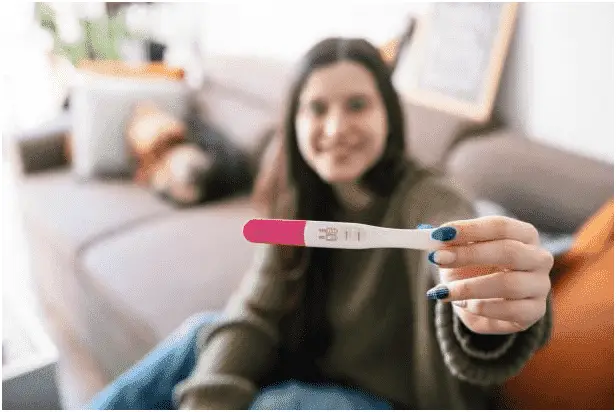Infertility affects millions worldwide, with increasing incidence. It is driven by various factors, including lifestyle, age, and health conditions. It is a silent ache that leaves dreams hanging in the balance. But IVF (In Vitro Fertilization), a beacon of hope, can illuminate paths to parenthood. Amidst the IVF journey, there’s hope, courage, and a shared journey towards parenthood against all odds.
Dr. Himali Maniar of Nisha IVF Centre – the best IVF centre in Ahmedabad, explains:
“IVF is a medical procedure where an egg and sperm are combined outside the body in a lab to create an embryo. The embryo is then implanted into the uterus, increasing the chances of pregnancy for couples with fertility issues.”
“IVF is a journey filled with longing, expectation, and sometimes, heartbreak. Depression after IVF failure is a real and challenging experience, impacting individuals and couples.”
Have you had a failed embryo transfer? Are you dealing with failed IVF depression?
Please consult Dr. Himali Maniar, who specializes in female infertility treatment in Ahmedabad. She can help you navigate post-IVF failure depression and take steps toward your dreams of parenthood.
Let’s understand why an IVF implantation failure occurs.
IVF Implantation Failure Reasons
There can be various reasons for IVF implantation failure, including:
- Embryo Quality: If the embryos used in IVF are of lower quality or have chromosomal abnormalities, they may struggle to implant successfully.
- Endometriosis: Endometriosis can interfere with the implantation process.
- Polycystic Ovary Syndrome (PCOS): Hormonal imbalances in PCOS can affect implantation.
- Uterine Factors: Issues with the uterine lining or structure can hinder implantation.
- Hormonal Imbalance: Hormonal imbalances can affect the receptivity of the uterine lining to embryo implantation.
- Autoimmune Disorders: Certain autoimmune conditions may impact the implantation process.
- Age: Advanced maternal age can affect egg quality and reduce implantation rates.
- Lifestyle Factors: Smoking, excessive alcohol consumption, and obesity can affect implantation.
A fertility expert like Dr. Himali Maniar can help assess the reasons for your IVF failure and provide effective treatment options.
Don’t hesitate to seek help on your path to emotional healing and hope.
Overcoming Depression After Failed IVF
To overcome depression after a failed IVF, consider these steps:
- Seek Support: Reach out to a therapist, counselor, or support group specializing in infertility and emotional well-being.
- Talk About It: Share your feelings with a trusted friend or family member who can provide emotional support.
- Professional Help: Consult Dr. Himali Maniar, a specialist in male and female infertility treatment in Ahmedabad, for expert guidance.
- Set Realistic Goals: Set achievable goals and focus on the future positively.
- Self-Care: Prioritize self-care through relaxation techniques, exercise, and a healthy diet.
- Couples Counseling: Consider couples counseling to strengthen your relationship during this challenging time.
Contact Dr. Himali Maniar, a proficient IVF Doctor in Ahmedabad, for support and guidance.
Remember, healing from a failed IVF is a process. It’s okay to seek help and support along the way.
The Effect Of Depression On The Next IVF Success
Depression may affect the next IVF cycle’s success. Severe depression can alter stress responses, hormones, and health, indirectly impacting IVF outcomes. To boost success chances, address depression before another IVF cycle with healthcare or mental health support.
Remember, there is hope after a failed IVF cycle. Many individuals and couples achieve successful pregnancies with subsequent IVF attempts.
Is depression after IVF failure affecting the quality of your life? Please seek help from fertility specialist Dr. Himali Maniar at Nisha IVF Centre. A state-of-the-art facility, Nisha IVF Centre is frequently called the best IVF centre in Ahmedabad.
Don’t wait if you’re depressed after IVF failure. Reach out to a fertility expert and a mental health pro now.
When To Consult A Fertility Expert?
Addressing both the emotional and fertility aspects of your situation is essential. Seek help when:
- If your depressive feelings persist for an extended period, impacting your daily life
- When depression affects your relationships, especially with your partner
- If you’re struggling to cope with the emotional toll of infertility and IVF setbacks
- Before considering another IVF cycle, addressing depression is vital to improve your emotional well-being and maximize your chances of success
Please consult a fertility expert, like Dr. Himali Maniar, and a mental health professional. They can provide comprehensive support and guidance tailored to your needs.
The pursuit of parenthood is often a rollercoaster of emotions. Let’s explore the emotional challenges and failed IVF side effects.
Emotional Effects Of Failed IVF
Experiencing failed IVF can bring a range of emotions. The failed IVF side effects, which are also the causes of depression, include:

- Strain on relationships with partners, family, and friends.
- Feeling deeply unhappy and disheartened.
- Experiencing a sense of letdown and unmet expectations after hoping for a positive outcome.
- Mourning the loss of the envisioned pregnancy and the emotional investment made during the IVF journey.
- Anxiety about the future and what the failed IVF means for one’s chances of parenthood.
- Self-blame and questioning one’s actions that may have contributed to the IVF failure.
- Isolating from others due to the emotional distress and feeling like no one understands.
- Coping with the ongoing stress of fertility treatments and the added strain of a failed IVF cycle.
- Feeling helpless and unable to control the outcome despite efforts and sacrifices.
- Experiencing persistent sadness, hopelessness, and a loss of interest in daily activities.
“It is entirely normal to feel a combination of emotions leading to depression after IVF failure,” says Dr. Himali Maniar. “But remember, you are not alone in experiencing these feelings. Help is available to navigate this challenging journey.”
Are you or a loved one dealing with the challenges of failed IVF and depression? Please meet Dr. Himali Maniar, an eminent IVF doctor at Nisha IVF Hospital in Ahmedabad.
Conclusion

Depression after IVF failure is a challenging and emotionally taxing experience. But it’s essential to remember that help and support are available. Seek guidance from a fertility specialist, such as Dr. Himali Maniar. She can provide you with the expertise and compassion needed to navigate this difficult journey.
With the proper care and support, you can address your emotions and explore options for future fertility treatments. Addressing both emotional and fertility needs is crucial to healing.
Take the first step towards emotional healing and renewed hope. Reach out to Dr. Himali Maniar for expert guidance on your emotional and fertility journey.
Take action for your well-being today.
FAQ
Q.1 How long should you wait after a failed IVF cycle?
A. It would be best to wait a few weeks to a few months before considering another IVF cycle after a failed attempt.
Q.2 Is a failed IVF transfer considered a miscarriage?
A. A failed IVF transfer is not considered a miscarriage. It means that the embryo did not implant successfully in the uterus.
Q.3 What happens when IVF implantation fails?
A. When IVF implantation fails, it means that the embryo did not successfully attach to the uterine lining.



